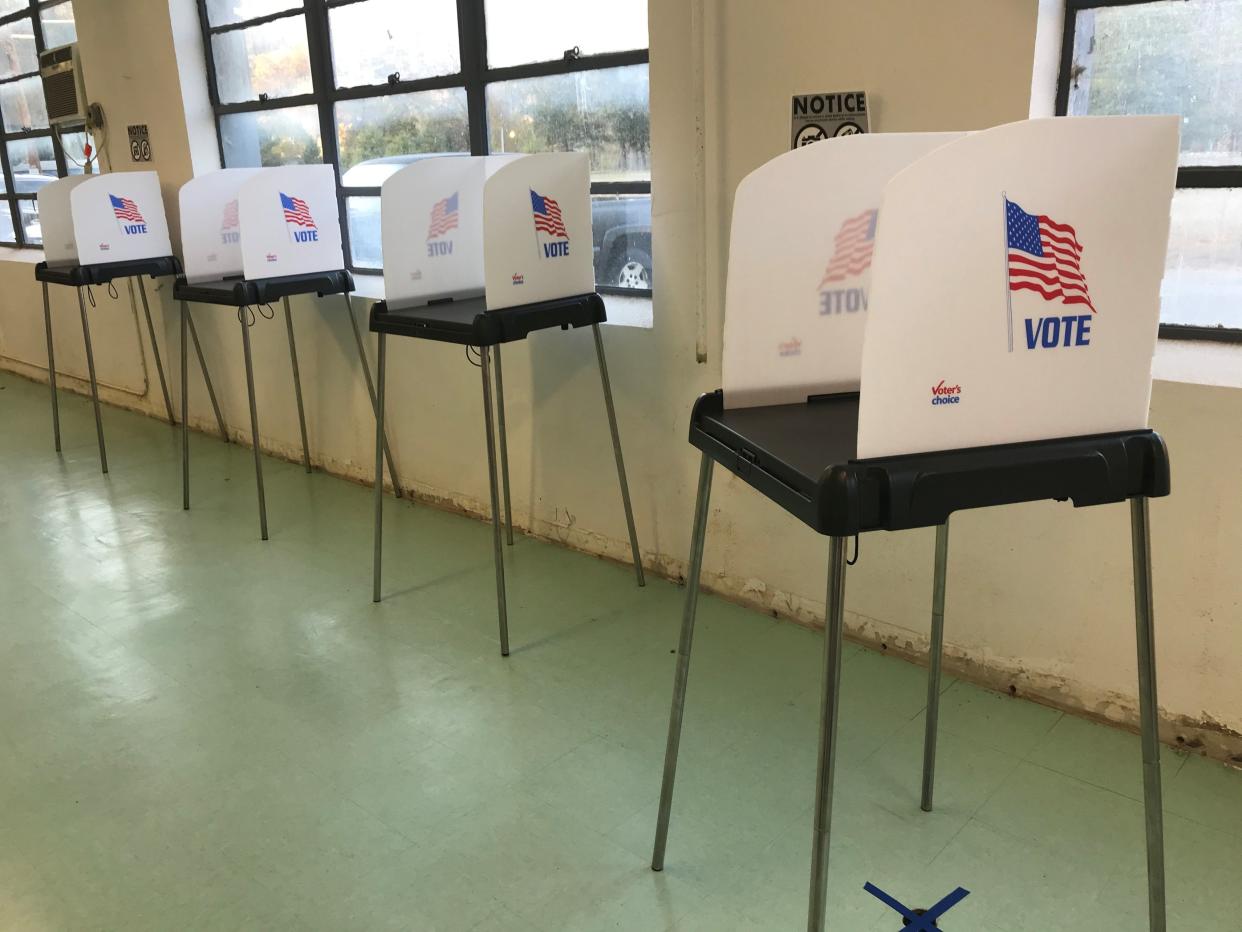3 challengers to square off against 3 incumbents in Hot Springs Town Board race

MARSHALL - With the deadline to file for candidacy passing on July 21, the ballots are set in the county's three municipal elections, and there are a number of new names that will appear on the ballot in the upcoming election.
In the November 2021 election, the Hot Springs Board of Aldermen's three candidates – Vaughan Barnett, Jeanne Caldwell Gentry and Jimmy Moore – ran unopposed.
In this year's election, the three incumbent board members will have three candidates running against them – Dan Myers, Robin Smith and Wendy Stancil.
"The amount of candidates that filed for Hot Springs Alderman is a bit surprising," said Madison County Board of Elections Director Jacob Ray, whose first election was in 2021.
Hot Springs Mayor Abby Norton will run unopposed.
According to the North Carolina State Board of Elections, Bussard received six write-in votes in the 2021 election.
In the Mars Hill Town Board of Aldermen election, there will be two candidates – Eddie Bussard and Terry Burnette – challenging two incumbent board members, Larry Davis and Stuart Jolley.
In the Marshall Town Board of Aldermen election, incumbent board members Aileen Payne and Laura Ponder Smith comprise the only two candidates.
In the Marshall mayor election, Aaron P. Haynie will run unopposed.
Partisan election?
In March, Rep. Mark Pless, who represents Haywood and Madison counties, proposed House Bill 264, which would require the election to be partisan.
The bill passed a third reading in the state House on May 3.
Shortly after the bill was introduced, Mars Hill Mayor John Chandler and Norton vehemently opposed the bill.
More: Mars Hill, Hot Springs mayors speak out against bill that would force partisan elections
Norton said she opposed the bill because if passed, it would require her to vacate her position.
"My first reaction was, 'I won’t be able to run this time unless I retire,'" said Norton, who is a federal employee. "My plans are to retire (from her federal position) this year, but I’m not sure if it will be in the summer or at the end of the year."
Part of the Hatch Act states federal employees are not allowed to be candidates in a partisan election, only in nonpartisan elections. As such, if the bill passes, it may mean Norton will not be able to run for reelection.
But Norton said she opposed the bill for other reasons, too. Mainly, she said she doesn't feel that a candidate's party affiliation matters in small towns like Hot Springs.
"In the 2021 election, 87 residents from Hot Springs voted in the election," Norton said. "The voters in smaller towns, like ours, know the candidates and they know where they stand on issues. If they don’t know, they’re not afraid to ask. They don’t need a party affiliation to determine who they will vote for."
In its March 13 meeting, the Mars Hill Town Board adopted a resolution expressing its disapproval of the proposed bill.
"House Bill 264 will force, and I'm going to put that in there, force, towns to go partisan with their elections, which we are totally opposed to," Mayor John Chandler said. "It works great like it is."
The resolution, #2023-003, "Position on proposed legislative changes forcing partisan municipal elections," reads:
"Whereas, municipalities in the State of North Carolina have a long history of being the most professionally run local governments in the country, as exhibited by the successful experience in the Town of Mars Hill; and whereas, since 1953, the Charter of the Town of Mars Hill provides that all elections shall be non-partisan; and whereas, the citizens of the Town of Mars Hill purposely chose the non-partisan method of election to ensure that local issues are addressed locally and not influenced by national or statewide political folly; and whereas, local officials who live and work daily in the community they represent are uniquely qualified to determine the specific needs of the citizens and community."
According to information received from Mars Hill Town Manager Nathan Bennett, 46% of Mars Hill voters are unaffiliated, while 31% are registered as Democrats, compared to 22% registered as Republican.
"These unaffiliated voters would be unfairly discriminated against, having their voice silenced, should they seek to be a candidate for municipal office under the partisan election method," the resolution continues.
"And whereas, should the citizens of Mars Hill desire to change the form of government of their municipality, there is by law a reasonable and appropriate process to bring that question to the voters of the municipality through a ballot referendum for the voters to decide the question for themselves, and not have the will of partisans forced upon them unilaterally."
Taking a similar stance to Norton, Chandler said the board "has prided itself for years that politics are not involved."
"That, to me, is why I'm here," Chandler said. "If it becomes partisan, I might not be here. I just don't like that it would try to make our decisions for the town's people, and it would be best to not be swayed one way or the other. And for that reason, we have the resolution."
This article originally appeared on Asheville Citizen Times: 3 challengers to face 3 incumbents in Hot Springs Town Board election

